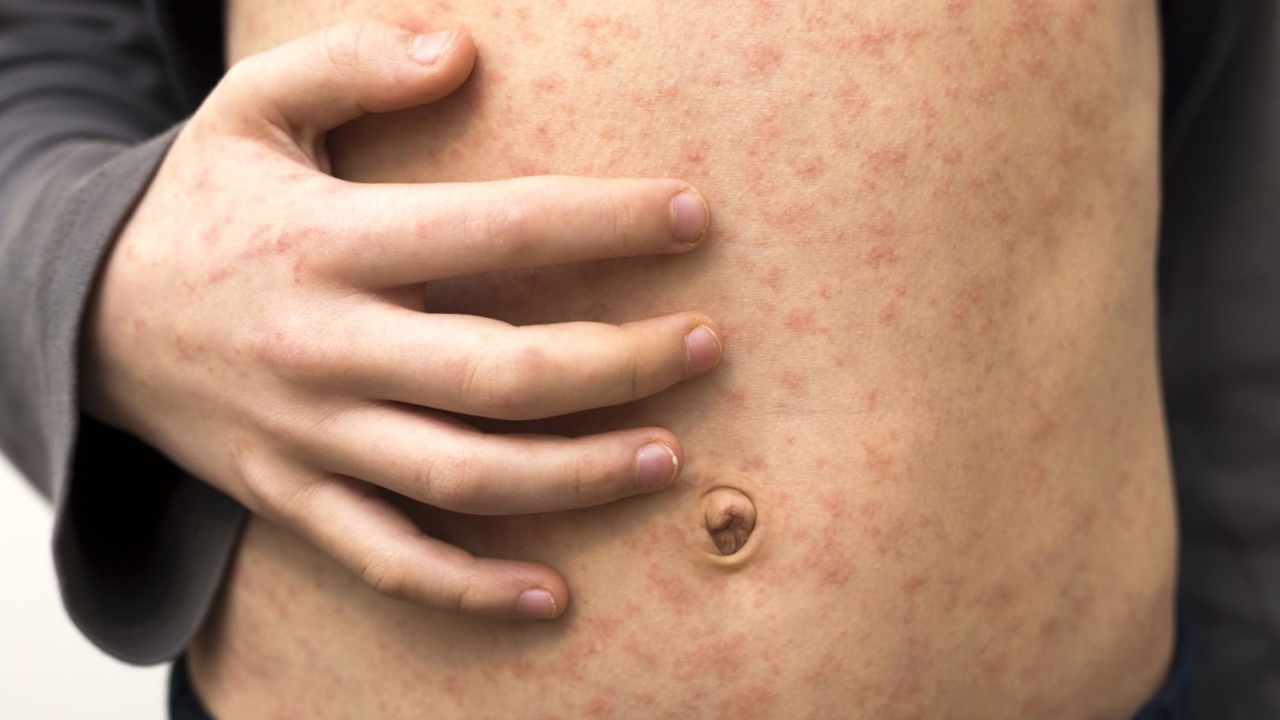The U.S. Centers for Disease Control and Prevention (CDC) warned last week that the impact of the COVID-19 pandemic had threatened global progress against the measles virus.
While reported cases of measles have fallen compared with previous years, a new report from the CDC and World Health Organization (WHO) says that progress towards measles elimination continues to decline and that the risk of outbreaks is building.
Last year, the agency said in a news release, more than 22 million infants missed their first dose of the measle vaccine, marking the largest increase in two decades.
RISING COVID-19 CASES FORCE HOSPITALS IN SOME STATES TO TAKE ACTION
Only 70% of children received their second dose of measles vaccine and 24 measles vaccination campaigns in 23 countries were postponed because of the pandemic.
While reported measles cases decreased by over 80% in 2020, measles surveillance also deteriorated.
The CDC said 2020 saw the lowest number of specimens sent for lab testing in over a decade.
Major measles outbreaks occurred in 26 countries and accounted for 84% of all reported cases in 2020.
As of Nov. 10, 2021, CDC data shows that a total of 47 measles cases were reported by four jurisdictions in the U.S.
The agency warned urged that countries and global health partners prioritize finding and vaccinating children against measles to prevent future deaths and outbreaks.
“While reported measles cases dropped in 2020, evidence suggests we are likely seeing the calm before the storm as the risk of outbreaks continues to grow around the world,” Dr. Kate O’Brien, the director of WHO’s Department of Immunization, Vaccines and Biologicals, said in a statement. “It’s critical that countries vaccinate as quickly as possible against COVID-19, but this requires new resources so that it does not come at the cost of essential immunization programs. Routine immunization must be protected and strengthened; otherwise, we risk trading one deadly disease for another.”
US WILL DISTRIBUTE JOHNSON & JOHNSON VACCINE IN CONFLICT ZONES, BLINKEN SAYS
While measles is one of the world’s most contagious human viruses, it is almost entirely preventable through vaccination.
Over the course of the last 20 years, the measles vaccine is estimated to have averted more than 30 million deaths globally.
The estimated number of measles cases in 2020 was 7.5 million around the world.
The measles virus lives in the nose and throat mucus of an infected person and can spread by coughing, sneezing, breathing contaminated air or touching infected surfaces and then touching one’s eyes, nose or mouth. Animals do not get or spread measles.
If one person has measles, up to 90% of the people close to that person who are not immune will also become infected.
Before the measles vaccination program started in 1963, an estimated 3 to 4 million people got measles each year in the U.S.
In 2000, the U.S. declared that measles was eliminated from the country due to the highly effective measles vaccine.
CLICK HERE TO GET THE FOX NEWS APP
However, unvaccinated travelers get measles while they are in other countries and bring it to America every year. Typically, two out of three of the unvaccinated travelers are Americans. The CDC warns that measles could re-establish itself in the U.S.
Measles symptoms typically appear 7 to 14 days after contact with the virus. Those symptoms usually include high fever, cough, runny nose and watery eyes. A measles rash appears 3 to 5 days after the first symptoms.





